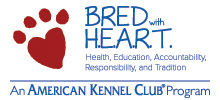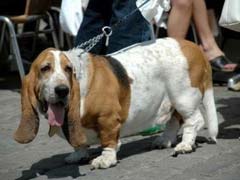What Your 12-month-old Puppy Needs

Dogs
Your 12-month-old puppy has certain needs to stay healthy! The following is a list of recommended wellness care for an 12-month-old dog including tips and advise on dewormers, heartworm prevention, flea and tick control, spay and neutering and nutrition.
Vaccines – 12-month-old puppies should have completed all of their puppy shots and are now ready for their annual booster. If your dog has not had any shots, he needs 2 sets of shots 3 to 4 weeks apart and one rabies vaccine. Fully vaccinated puppies may receive their annual booster (DHLPPC) and Rabies. Additionally, Lyme disease vaccination and Bordetella vaccine may be recommended depending on your pets level of risk, especially in situations like boarding or kenneling.
Dewormers – Most puppies at this age have already been dewormed and do not require additional deworming unless they are infested. Your veterinarian can check a fecal sample to determine if worms are present. Alternatively, a dewormer can be given and may be repeated in dogs that have an unknown history or have not been previously dewormed. Many heartworm preventative medications control worms which eliminates the need for routine deworming.
Heartworm Prevention – Heartworm prevention is important. Canine heartworm disease is a serious parasitic disease caused by a long, thin worm that lives in the blood vessels and heart of infected dogs. The disease is spread by mosquitoes. Before beginning heartworm prevention, any dog over seven months of age should first have a heartworm test. Heartworms are present in most parts of the United States. Ask your veterinarian if your dog is at risk. Repeated heartworm blood testing every one to three years is recommended even for dogs taking heartworm preventative.
Flea/tick Control – Depending on where you live and your current flea situation, there are very good preventative medications to control flea and ticks. The best and safest products are prescribed by veterinarians.
Spay/Neuter – Most dogs should be spayed or neutered now, if they have not been already. Check with your veterinarian to determine their recommendations.
Diet – Most veterinarians recommend weaning to an adult food sometime between 9 and 12 months of age, depending on the breed and size of your dog. It is recommended for some large and giant breed dogs to continue a large breed puppy food for several more months. Check with your veterinarian for their recommendations. Toy, small and medium sized dogs should be eating a good quality food formulated for adult dogs of his or her size once to twice daily. At adulthood, pick a food that matches your pet's age and lifestyle. Your pet may have an inactive lifestyle and may need a lower calorie or light pet food to keep him trim.
Every brand of food has different nutrients, caloric densities and feeding recommendations. There is no set formula for how much to feed. Check the manufacturer's recommendations on how much to feed. Treats, people food and table scraps all contribute to your pet's calorie intake. Too many "extras" add lots of calories – and may lead to obesity.


 Protecting Your Dog During Hunting Season
Protecting Your Dog During Hunting Season
Protecting Your Dog During Hunting Season
Protecting Your Dog During Hunting Season
 Eight Home Remedies for DIY (Do It Yourself) Dog Care
Eight Home Remedies for DIY (Do It Yourself)
Eight Home Remedies for DIY (Do It Yourself) Dog Care
Eight Home Remedies for DIY (Do It Yourself)
 The Doberman Breeder: An Endangered Species?
Anti-breeding ways of thinking dist
The Doberman Breeder: An Endangered Species?
Anti-breeding ways of thinking dist
 Dog Hip Dysplasia Treatment
Large
Dog Hip Dysplasia Treatment
Large
 How to Stop My Dog From Eating Tissues
How to Stop My Dog From Eating Tissues
How to Stop My Dog From Eating Tissues
How to Stop My Dog From Eating Tissues